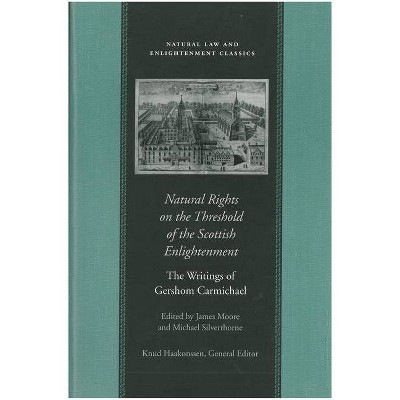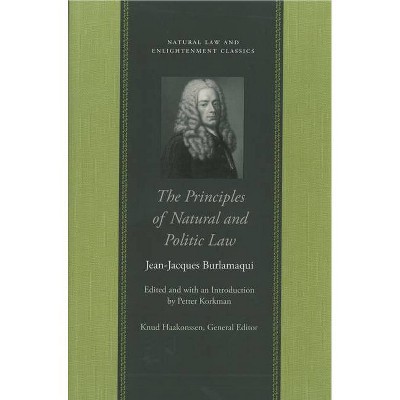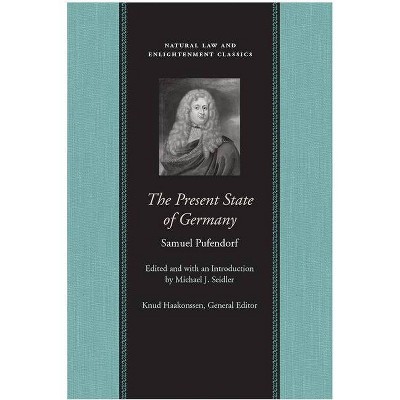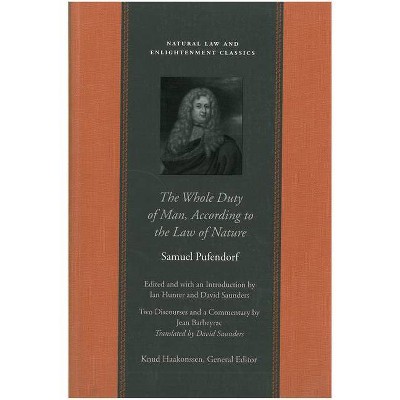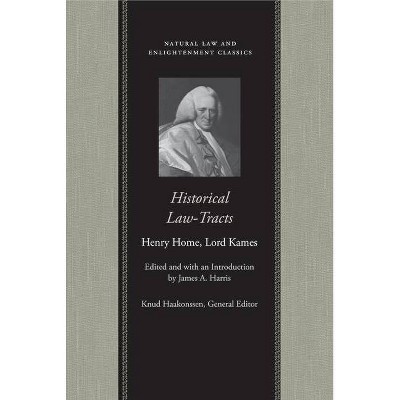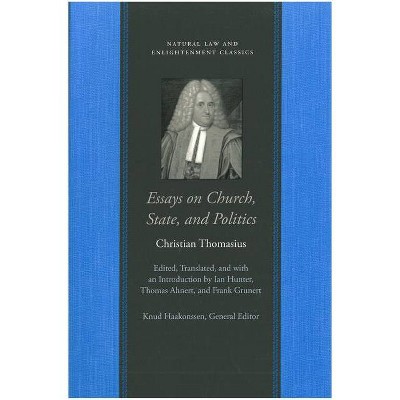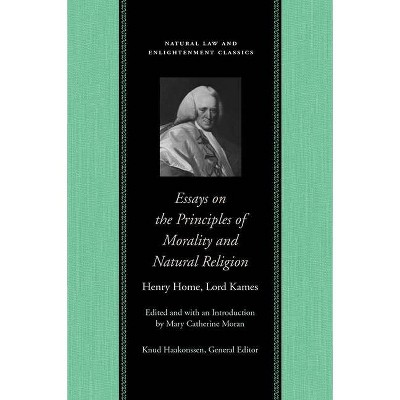The Origin of the Distinction of Ranks - (Natural Law and Enlightenment Classics (Paperback)) by John Millar (Paperback)
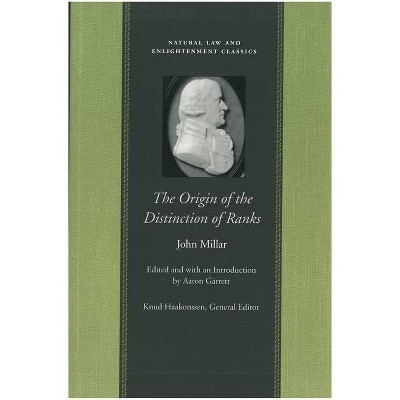
Similar Products
Products of same category from the store
AllProduct info
<p/><br></br><p><b> Book Synopsis </b></p></br></br><p><strong><em>The Origin of the Distinction of Ranks</em></strong> is one of the major products of the Scottish Enlightenment and a masterpiece of jurisprudence and social theory. Drawing on Adam Smith's four-stages theory of history and the natural law's traditional division of domestic duties into those toward servants, children, and women, Millar provides a rich historical analysis of the ways in which progressive economic change transforms the nature of authority.</p> <p><strong>John Millar</strong> (1735-1801) attended Adam Smith's lectures at the University of Glasgow and later became a distinguished professor of law there.</p> <p><strong>Aaron Garrett</strong> is Associate Professor of Philosophy at Boston University.</p><p/><br></br><p><b> Review Quotes </b></p></br></br><br>Much evidence stacked up on my bookshelves suggests. . . .a determination to scrutinize <i>and</i> respect claims for the Enlightenment: Liberty Press's ongoing series <i>Natural Law and Enlightenment Classics</i> (which saw new editions this year of John Millar's <i><b>An Historical View of the English Government: From the Settlement of the Saxons in Britain to the Revolution in 1688</b></i> and <i><b>The Origin of the Distinction of Ranks</b></i>, Francis Hutcheson's <i><b>Logic, Metaphysics, and the Natural Sociability of Mankind</b></i>, and Jean-Jacques Burlamaqui's <i><b>The Principles of Natural and Politic Law</b></i>); the several books that revalue Enlightenment aspirations as they make philosophy the master key for unlocking cultural preoccupations. <br /><br /><b><i>Studies in English Literature</i></b><br />Summer 2007 <br /><br /><br />Aaron Garrett has produced an excellent and incisively introduced edition of John Millar's <i><b>Ranks</b></i> for Knud Haakonssen's Natural Law and Enlightenment Classics series. Garrett's edition reproduces the posthumously published fourth edition of Millar's book. Published in 1806, the fourth edition was essentially a reprinting of Millar's third edition, which was the final lifetime edition of the author. It contains a life of Millar by his nephew, John Craig, which offers, as Garrett points out, a "fascinating portrait" of the intellectual milieu of Glasgow in the 1770s: "the teaching of law at the University, the great regard in which Millar was held, and his rare personal qualities" (xvii). Garrett has also helpfully included appendices of Millar's own preface to the first edition and his Lectures on Government.<br /><br />Garrett's introduction also provides a helpful synopsis of Millar's arguments, emphasizing the historical dimensions of Millar's thought. What emerges is a concise description of Millar's theory of authority, or what Garrett describes as "an empirical account of how rights arise and how they change" as well as a "means to understand the historical discrepancies in the scope of authority" (x). Setting Millar's arguments for the moral foundations of cultural differences against the historical and stadial assumptions of Smith and Hume, Garrett emphasizes the elements of Millar's work that focused on familial rights. It was this emphasis which allowed Millar to set the problem of natural rights in sharp focus. "The right of father over child," for example, when examined "comparatively and historically," revealed "drastic differences" from ancient Rome to Georgian Glasgow in the "authority appropriate to the exercise of the right" (x). As Garrett poses it, the question for Millar is in essence this: "If the most basic social rights are mutable and artificial, and if man is social, what is man to make of natural rights at all? (xv). Millar addresses the problem of rights by pushing them in a "single-minded way" within an aggressively historical theoretical framework. Garrett efficiently contextualizes Millar's work against the writings of those contemporary proponents of stadial theory, placing central importance on the influence of Smith's views of rights and justice. These Millar gleaned from attending Smith's lectures on moral philosophy in 1751. Other sources for Millar's <b><i>Ranks</i></b>include Lord Kames's <b><i>Historical Law Tracts</i></b>(1758) which, Garrett contends, suggested a variant historical evolution of different aspects of the law, including criminal and property law.<br /><br />Garrett's edition is a welcome contribution to the ever-widening debate on the historical and juridical sociology of the Scottish Enlightenment. It provides an accessible and provocative text from which to observe more carefully the complexities and subtleties of the new Scientific Whig and his efforts to qualify and situate natural law arguments within the contradictory tensions of a historically contingent and expansively divergent commercial society.<br /><br /><b><i>Eighteenth-Century Scotland <br /></i></b>Spring 2006<br>
Price History
Cheapest price in the interval: 14.59 on October 23, 2021
Most expensive price in the interval: 14.59 on November 8, 2021
Price Archive shows prices from various stores, lets you see history and find the cheapest. There is no actual sale on the website. For all support, inquiry and suggestion messagescommunication@pricearchive.us
